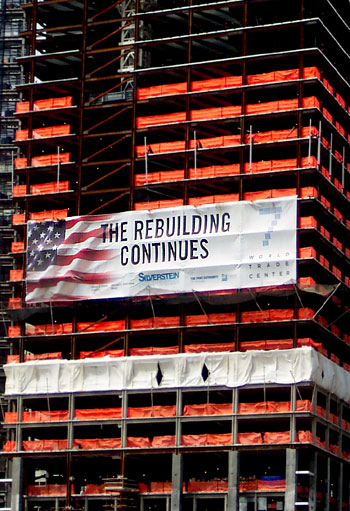|
Three Years of Rebuilding: |
New York has been on the front lines of the security debate, both because its security concerns are arguably the nation's greatest , and because many of those most affected by restrictions in civil liberties are immigrants living in cities. This was illustrated last years when large numbers of New York's immigrants - mainly Pakistanis - for fear of a program which required males from 24 Muslim countries and North Korea to register with the federal government.
The federal Department of Homeland Security, created in 2002 as a way to defend against terrorism, has been giving out grant money to states and cities for their own anti-terror efforts. New York officials are now unanimous in saying that the department's grant program has turned into a way for politicians to push pork towards their own districts, leaving New York City without the resources it needs to protect itself.
Currently, much of the funding is given out without regard to the threat level that a certain area is under. A portion of the money is given out evenly to every state; another portion by population. A set amount of money is reserved for high risk areas, but as more areas are deemed high risk, the proportion of this money that New York receives has dropped dramatically. New York has spent large sums on transforming its own police department into a counter-terrorism force, but the state gets less funding per-capita than almost any other.
Local emergency responders, the federal system for allocating anti-terror money, and the national system of intelligence were all criticized by an independent federal panel whose job was to investigate the 9/11 attacks on Washington and New York. The 9/11 Commission, as it was commonly called, operated from 2003 through August 2004, when it released a book-length report on its findings (in pdf format).
The commission found fault with the city's emergency response system largely because it felt that the various rescue agencies are incapable of working together in major emergencies . But it saved its harshest criticism for the federal intelligence agencies. The commission's major recommendation was to create a cabinet level intelligence czar, who would have wide control over the operations and budgets of the various intelligence agencies .
For more, see the Security section in Rebuilding Next Page: Health and Environment





